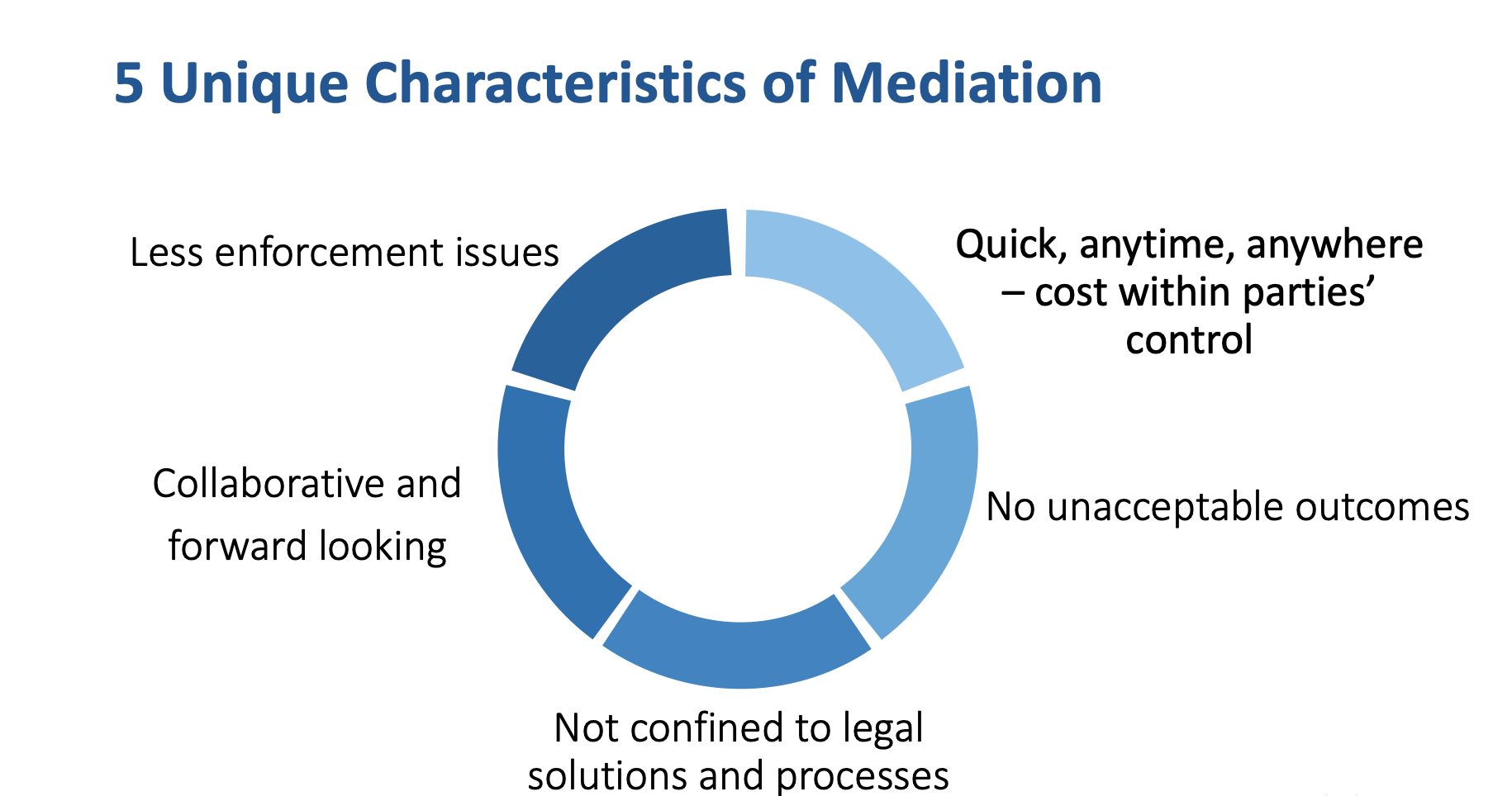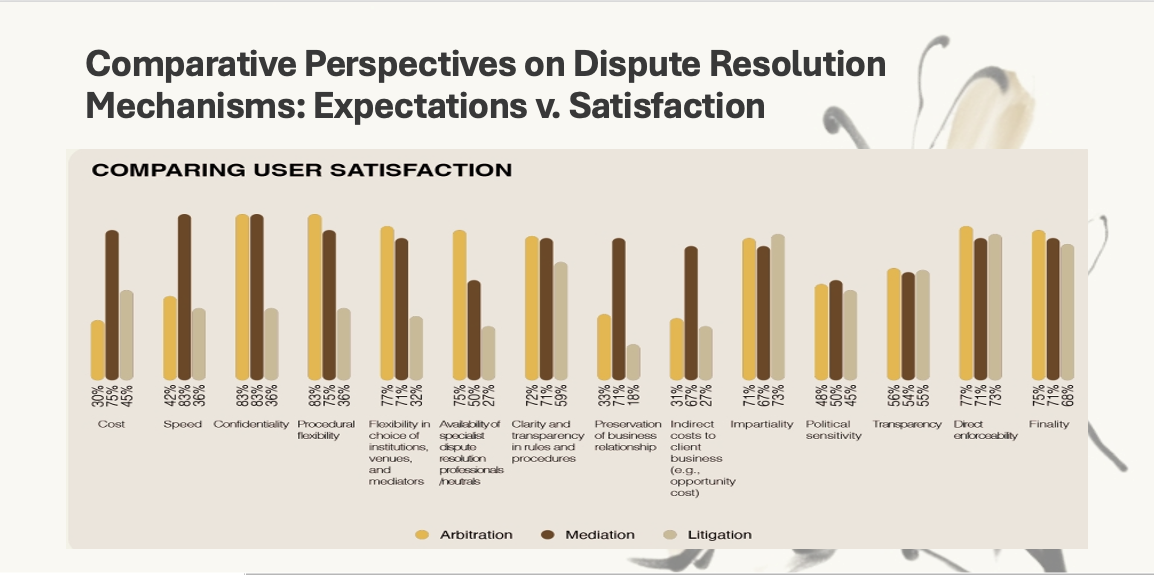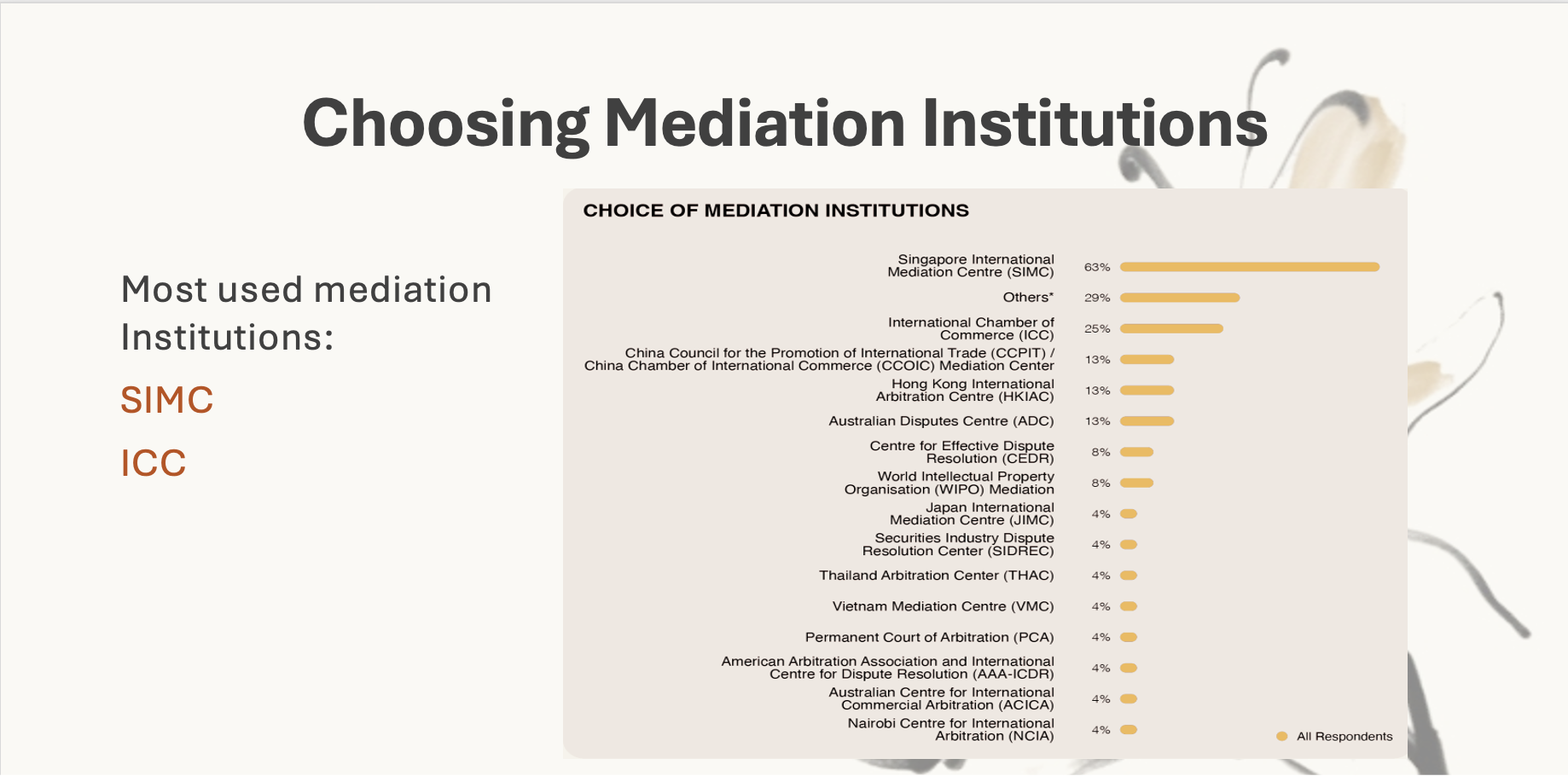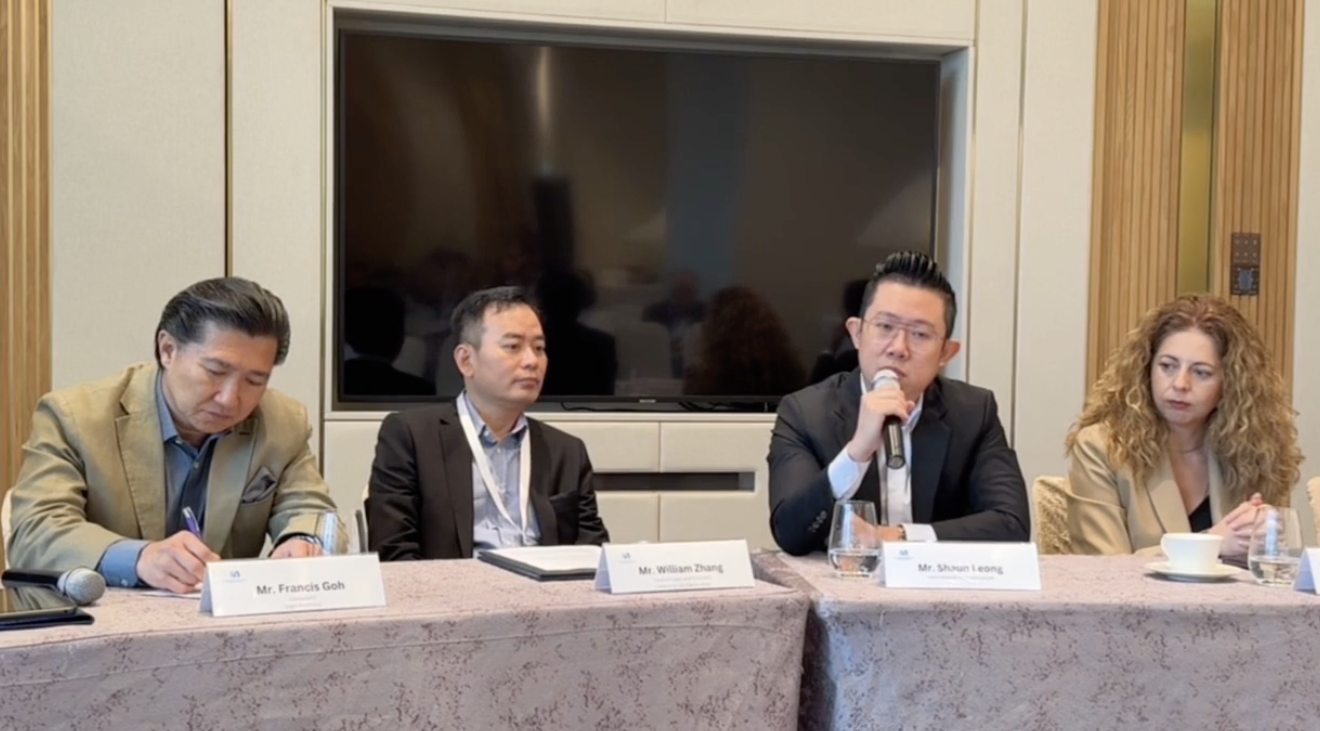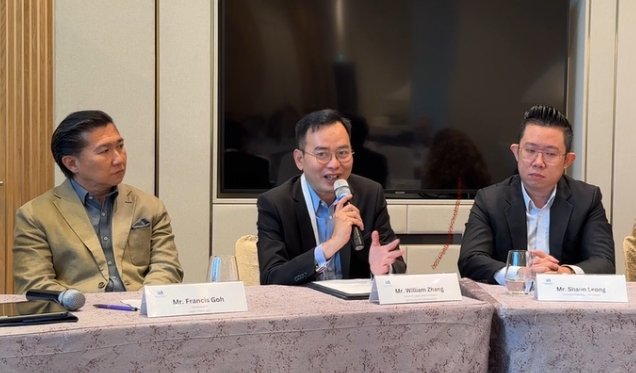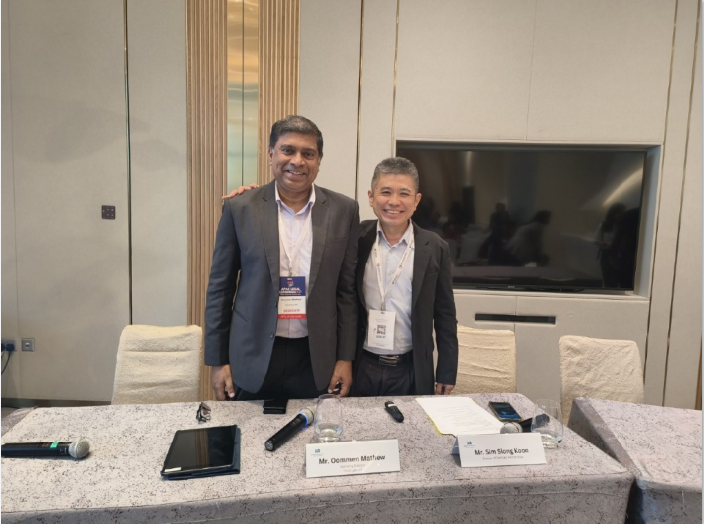Mediation: Why it’s a MUST in today’s General Counsel’s toolbox
By: Antony Lee, Director Strategic Engagements, SIMC
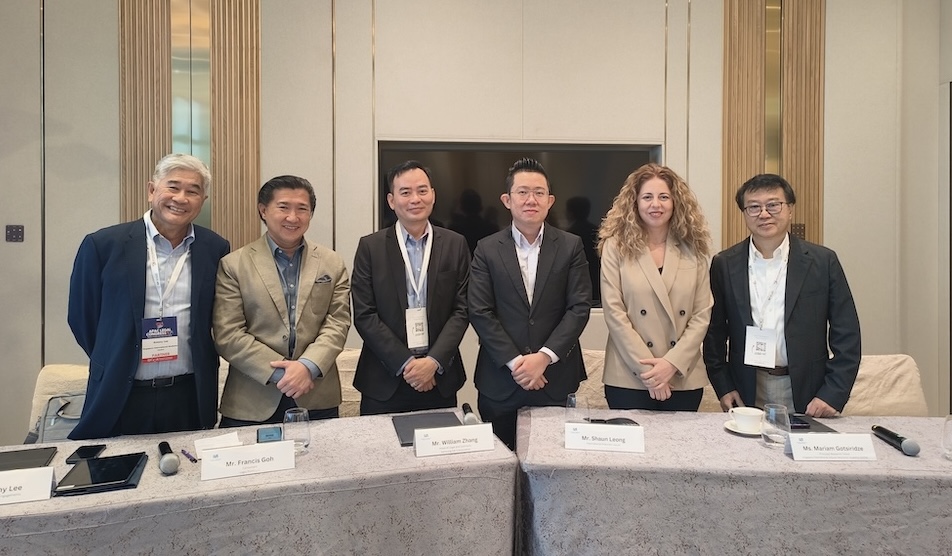
From left to right: Antony Lee, Francis Goh, William Zhang, Shaun Leong, Mariam Gotsiridze and Benatt Lee.
I had the pleasure of moderating a panel discussion at the Singapore Corporate Counsel Association (SCCA) APAC Congress 2025 on Friday 4th April. Our thanks to the SCCA for inviting SIMC as one of its strategic partners for the Congress.
We gathered a great panel to share their perspectives of the mediation process.
Benatt Lee, the Registrar of the SIMC, kicked off the panel discussion by highlighting the benefits of mediation and clarifying some of its common misconceptions. He closed with an introduction to SIMC.

Mariam Gotsiridze, a Principal Research Fellow with Singapore International Dispute Resolution Academy (SIDRA), was the second speaker. She summarized succinctly the main points from the mediation section of 2024 SIDRA International Dispute Resolution Survey:
- The increasing popularity of international mediation mainly due to the cost and time effectiveness as a mode of dispute resolution. It is also the preferred dispute resolution mechanism for parties who wish to preserve relationships with each other.
- The recommendation of external lawyers and the incorporation of mediation clauses in agreements were the main drivers for the choice of mediation to resolve disputes.
- SIMC and ICC were identified by respondents as the most popular international mediation institutions.
Shaun Leong, an international disputes lawyer and arbitrator was the third speaker. Shaun provided the perspective of the external counsel. He highlighted some common concerns that clients have with the mediation process. He was of the view that an appropriately drafted mediation clause would allay many initial concerns that clients have. From his experience, the cost of mediation is a small percentage of the overall costs of a dispute that ends of with a full hearing before a tribunal.
Click here to watch Shaun share his perspective: Perspective from an External Counsel: Why Mediation is a Must in Today's General Counsel's ToolBox.
Next, William Zhang gave the client user perspective of mediation. As a seasoned general counsel with an international construction company, William is richly qualified to share his experience managing disputes. William has advised in many disputes and has participated in numerous mediation sessions. Overall, he reports positive experiences with mediation. The following are some of the main takeaways from William:
- Parties benefit from significant cost and time savings when disputes are resolved early in the dispute process, usually with the help of a mediator.
- Even if the first mediation is not successful, parties usually narrow their differences so that the tribunal can focus on the deciding the key issues separating the parties. This ability to focus saves time and cost.
- Some inconclusive but well conducted mediations may enable parties to re-engage and find a settlement at a later stage. William recounted a case where the commercial representatives from opposing sides shook hands at the end of an “unsuccessful” mediation. This connection led them to negotiate a settlement 2 weeks after the mediation.
- It is important to secure management support and involvement throughout the dispute resolution process. William shared how he manages his internal stakeholders to get them involved in the process. He also encourages his legal team to look beyond the legal analysis and consider the interest of the company.
Click here to watch William share his perspective: Perspective from an In-House Counsel: Why Mediation is a Must in Today's General Counsel's ToolBox.
Finally, Francis Goh provided his views, seen through the eyes of an experienced mediator. Francis gave his rich perspectives on preparing for a mediation and the ingredients for a productive mediation. He identified some common obstacles during a mediation and how he overcomes them. Francis provided some great insight as to how he can use the flexibility of the mediation process to facilitate dialogue directly between the parties when this was initially thought not possible.
Click here to watch Francis share his perspective: Mediator's Perspective on Mediation and Role of In-House Counsel.
I closed the panel session by highlighting some reasons why an understanding of the mediation process and the accompanying skills of a good mediator are essential for today’s General Counsel.
- Complexity of Disputes: With advances in technology in areas like AI and cryptocurrencies, growing ESG risks and the impact of geo-political risks on commercial arrangements, disputes have become more complex. Cross-border and cross-cultural considerations add a further layer of complexity. Such complexities often lead to uncertain outcomes if the dispute is decided by a tribunal. To avoid this uncertainty, parties may prefer to resolve the matter between themselves with the help of a neutral mediator. The outcome is in their hands.
- Costs and time saving. GCs have an opportunity to demonstrate, tangibly, how their management of the dispute and deployment of mediation can contribute to saving costs and time. This will free an organisation’s resources for more productive purposes.
- Convenience. A mediation can be convened quickly. It is a flexible process to meet the requirements of the parties. It is for the parties to determine the outcome.
- Complementary to the traditional dispute resolution mechanisms. Courts in many countries now require parties to try amicable resolution methods like mediation to resolve their dispute. Arbitration centres like SIAC are increasingly encouraging parties to do the same. SIAC’s 2025 Rules explicitly provides for this (see Rules 32.4 and 50.2). GCs should be aware of these trends and the growing importance of mediation. GCs will then be able to recommend to their management the most appropriate dispute resolution mechanism(s) for that dispute.
- Control of external lawyers to lead to more timely outcomes: The GC knows the organisation’s interests, values, risk appetite and priorities. The GC should have a critical role in dictating the constitution of the legal team to represent his/her organisation. He/ she can identify the skillsets and expertise of the legal team (for example, to decide whether to include members with industry or mediation advocacy expertise) to help achieve a timely and acceptable resolution of the dispute.
- Consolidate the GC’s position as a trusted strategic partner to the business: GCs should have some knowledge of the mediation process and acquire some mediator skills. These should enhance his/ her standing in the organisation as a trusted and strategic partner of the business.
- First in the context of a dispute, the GC brings (i) a detached and professional view, (ii) an awareness of the organisation’s values, strengths, weaknesses and risk appetite; and (iii) the possible solutions, to guide and provide reality checks to the senior management, often in stressful situations.
- Second in the context of disagreements or differences between units within the organisations, the GC (who often has considerable standing within the organisation) can use some of the mediator’s skills to help the units resolve their differences quickly and efficiently.
- Clauses: This is a call to action for GCs. GCs should consider whether to incorporate mediation clauses their organisation’s agreements, especially the international ones. An appropriately crafted mediation clause will enable parties to start facilitated discussions with each other sooner rather than later. This will promote the chances of an earlier resolution of the dispute leading to consequential savings in time and costs. Parties can focus on more productive endeavours; and even better to retain their relationship with each other.
(Find out more about SIMC's model clauses here: https://simc.com.sg/model-clause).
Following this session was a discussion on how AI can support mediators in their work. Led by SIMC’s Director for Strategic Partnerships, Siong-Koon Sim, and SIMC mediator Oommen Mathew, who is also the Managing Director of Omni Law LLC, the session introduced SIMC's Mediation AI Assistant (MAIA) and its role in assisting mediators. Oommen also shared his experience using MAIA in practice, highlighting how it can help mediators work more efficiently.
Check out the highlight video.


